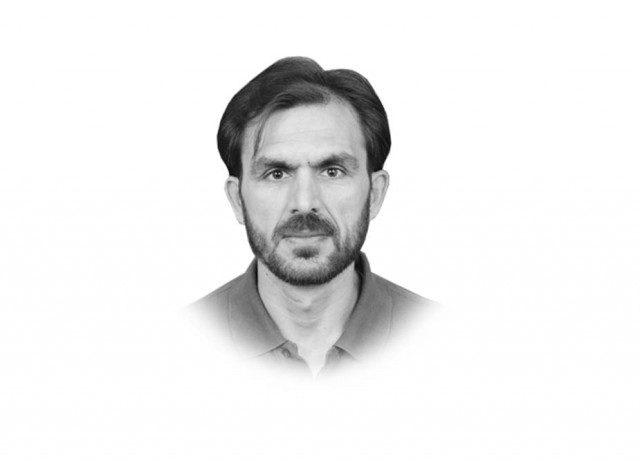The Afghanistan endgame
Islamabad is in a better position to mediate between Kabul, the Haqqani network and the Quetta Shura.

In Afghanistan, a face-saving exit isn't possible unless President Karzai wins over at least some of the Taliban to give a semblance that his administration represents the ethnic mix of the war-torn country.
Surprisingly, Pakistan is not in the loop on this secretive peace plan, much to the chagrin of the top leadership in Islamabad and Rawalpindi. And Prime Minister Gilani has said it loud and clear that any political settlement in Afghanistan without his country's input will be doomed. True. The Karzai administration needs the support of the Pashtun, who make over 55 per cent of Afghanistan's population. And the Taliban are overwhelmingly Pashtun.
Islamabad is in a better position to mediate between Kabul, the Haqqani network and the Quetta Shura. But for the US, the Haqqani network, led by Maulana Jalaluddin Haqqani and his son Sirajuddin Haqqani, are ‘irreconcilable’ Taliban. One because they are sheltering al-Qaeda, and two because they are fuelling the Afghan insurgency from their basis in the North Waziristan tribal region. Washington wants to defeat the Haqqanis, both militarily and politically. Militarily, it has not only stepped up drone attacks in North Waziristan but is also mounting pressure on Pakistan to go after the Haqqanis.
And politically, it has started efforts to isolate the Zardan tribe, to which the Haqqanis belong and from which they draw most of their foot soldiers to keep the insurgency going. Proof: Last month, President Karzai secretly met Maulvi Abdul Kabir, a Zardan tribe elder who served as governor of the Afghan province of Nangarhar and deputy prime minister during the Taliban regime. Washington and Kabul believe if they manage to split the Zardan tribe, it will weaken the Haqqanis and ultimately the Afghan insurgency in eastern provinces. Maulvi Kabir is believed to be running one of the several Taliban councils in Peshawar but he's a mid-level leader, not a powerhouse. Will talks with the fringe Taliban help Karzai's peace plan? I doubt. Without the Haqqanis and the Quetta Shura, or the senior Taliban on board, I believe the peace plan isn't going anywhere.
Turning to Pakistan's gambit, Islamabad wants to see a government in Kabul which not only protects its interests but at the same time denies India a say in the country's affairs. Reason: Pakistan doesn't want to be squeezed between two hostile neighbours. But unlike the past, Islamabad isn't putting all its eggs in one basket. Apart from its ostensible allies, the Pashtuns, Pakistan is also reaching out, or at least trying to reach out, to other ethnic minorities in Afghanistan, among them Uzbeks, Tajiks and Hazaras, as was recently revealed by Foreign Minister Shah Mahmood Qureshi. But it is the Haqqani network that it is mainly relying on. Moving on, what are India's concerns? New Delhi has accepted the Taliban reintegration plan of President Karzai but with reservations.
It feels that in an Afghanistan, with the Taliban at the helm, its interests will not be protected. Traditionally, India has been close to the Northern Alliance, a conglomerate of ethnic warlords other than the Pashtuns, which it supported throughout the Afghan civil war following the withdrawal of the Soviet troops. But President Karzai, and even the international community, knows over 55 per cent Pashtuns can't be ignored in any future political settlement in Afghanistan.
Finally, what does the US have on its mind? Only one thing: an honourable exit The Obama administration wants to see American interests protected in Afghanistan after the troops pullout, which it believes, at least the Haqqanis cannot. But at the same time it's cognizant of Pakistan's concerns, which it wants to address without ‘rewarding’ the Haqqanis.
Published in The Express Tribune, November 8th, 2010.














COMMENTS
Comments are moderated and generally will be posted if they are on-topic and not abusive.
For more information, please see our Comments FAQ